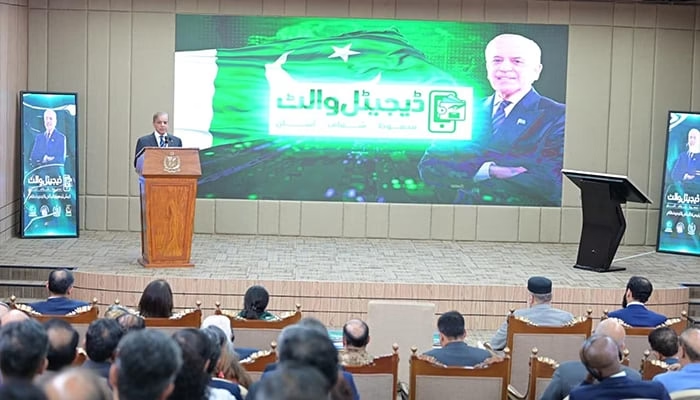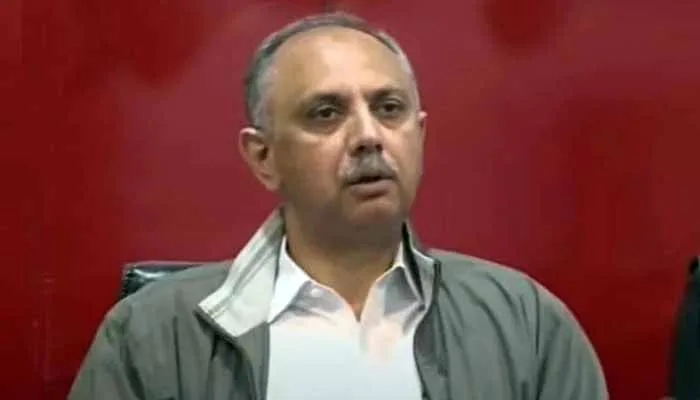Prime Minister Shehbaz Sharif has officially launched 10 million BISP digital wallets, marking a historic milestone in Pakistan’s journey toward transparency, financial inclusion, and a cashless economy. This groundbreaking initiative under the Benazir Income Support Programme (BISP) is expected to empower millions of low-income families, particularly women, by providing them with secure and direct access to financial assistance.
Transforming BISP with Digital Innovation
With a symbolic palm touch, PM Shehbaz inaugurated the new BISP digital wallets in the presence of federal ministers, BISP leadership, and international partners, including GIZ. He congratulated BISP Chairperson Senator Rubina Khalid and the programme’s team for taking what he called a “landmark decision” to safeguard genuine recipients and eliminate undue hurdles.
“The digital wallet system is, in its true sense, blessed by the soul of Shaheed Mohtarma Benazir Bhutto, as it empowers BISP beneficiaries with safe, transparent, and direct access to financial assistance,” the prime minister said.
He emphasized that BISP has been a flagship programme for poverty alleviation and women’s empowerment, but the integration of technology now makes it a model for digital transformation as well.
A Major Step Towards a Cashless Economy
Calling the launch a great leap towards a cashless economy,PM Shehbaz highlighted how digitization is reshaping government-to-citizen transactions. He recalled that during Ramadan, 78% of the relief package was successfully disbursed through digital channels, despite skepticism from vested interests.
“Cashless transactions are the pressing requirement of our times. They save time, end corruption, and bring efficiency, helping Pakistan progress rapidly,” he remarked.
The prime minister revealed that he personally chaired several meetings on digitization, underscoring his determination to transform government-to-government, business-to-business, and even personal transactions into digital channels.
Linking Assistance to Education and Health
Shehbaz Sharif urged BISP leadership to integrate social conditionalities into the programme. He proposed linking cash assistance with education and health initiatives, ensuring that children of beneficiary families attend school and that households participate in basic health programs.
If a family is receiving assistance, it should be tied to children’s schooling and health coverage. Only then will this programme become a true legacy benefiting millions of children,he stated.
He also called for reducing the programme’s implementation cycle from the current eight to ten months down to four months to ensure faster and more efficient support delivery.
Security and Transparency Through Digital Systems
According to BISP Federal Secretary Amir Ali Ahmed, the BISP digital wallets will be developed using beneficiaries’ CNICs and secured by biometric verification to prevent identity theft. Additionally, 10 million free SIM cards will be distributed to beneficiaries, with the first phase already underway in Hyderabad, Sukkur, and Rahim Yar Khan.
This integration of SIM cards and digital wallets is expected to enhance access to services, improve transparency, and reduce reliance on middlemen who have historically exploited beneficiaries.
Empowering Women Through Digital Inclusion
Senator Rubina Khalid, Chairperson of BISP, hailed the launch as a “historic milestone” in Pakistan’s social protection journey. She explained that linking benefits to women’s CNICs not only ensures transparency but also provides recognition and inclusion for women in the national database.
“This programme, which supports over 10 million impoverished families, is not just financial assistance—it is a pathway to social and economic empowerment,” she said.
The introduction of BISP digital wallets will be supported by digital literacy programmes, helping women unfamiliar with technology to navigate mobile wallets, online payments, and other financial tools. This step is expected to significantly improve women’s participation in the digital economy.
Continuation of Benazir Bhutto’s Vision
Rubina Khalid highlighted that BISP remains a continuation of Shaheed Benazir Bhutto’s vision for women’s empowerment—a dream carried forward by President Asif Ali Zardari and now excelling further under Prime Minister Shehbaz Sharif’s leadership.
The prime minister echoed this sentiment, saying: We are not just disbursing aid; we are raising an army of architects and workers to build the nation.
A Digital Future for Social Protection
The launch of BISP digital wallets represents more than just a technological shift; it signals Pakistan’s broader move toward a transparent and efficient welfare system. With 10 million wallets linked to beneficiaries’ CNICs, Pakistan is laying the foundation for a financial inclusion model that reduces corruption, enhances accountability, and empowers the most vulnerable citizens.
By linking aid with education and health, providing biometric safeguards, and fostering digital literacy among women, the programme is set to transform not only how aid is delivered but also how families break the cycle of poverty.
The initiative is proof that social protection, when combined with digital innovation, can become a tool for empowerment rather than dependency. With continued political will and support from partners, BISP digital wallets could pave the way for a stronger, more inclusive Pakistan.



